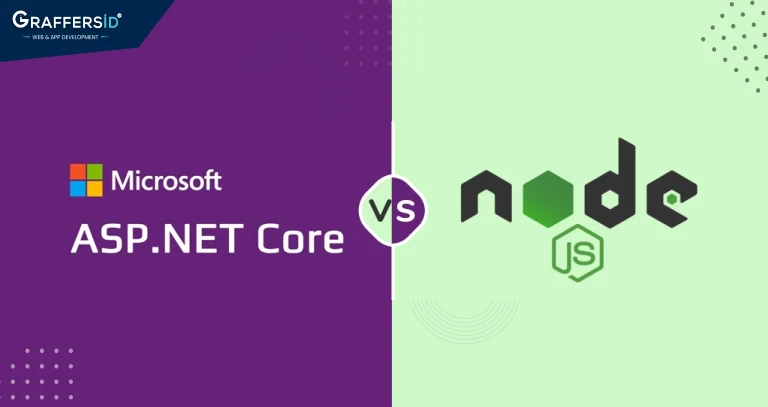Do you have a software design in mind? If yes, we bet the most important concern would be choosing the right programming language. When it comes to the trendiest programming languages, you might have a lot of options in mind. Honestly speaking, the market has always been loaded with a lot of programming language options. But, to ensure your software, website or app features uncompromising functionality and an easy user interface, you must pick the right language. If you are confused between .NET Core vs Node.js, you are at the right place.
Read on our analysis for a clear comparison between these two languages and to explore why Node.JS is a far better option.
Table Of Content:
- What Is Node.JS?
- Node.JS Features
- Node.JS Market Size
- Node.JS Applications
- What Is .NET Core?
- .Net Core Features
- .NET Core Framework
- Detailed Comparison Between Node.JS VS .NET Core
- Who Is The Winner?
- Why Hire Remote Developers from GraffersID
What Is Node.JS?
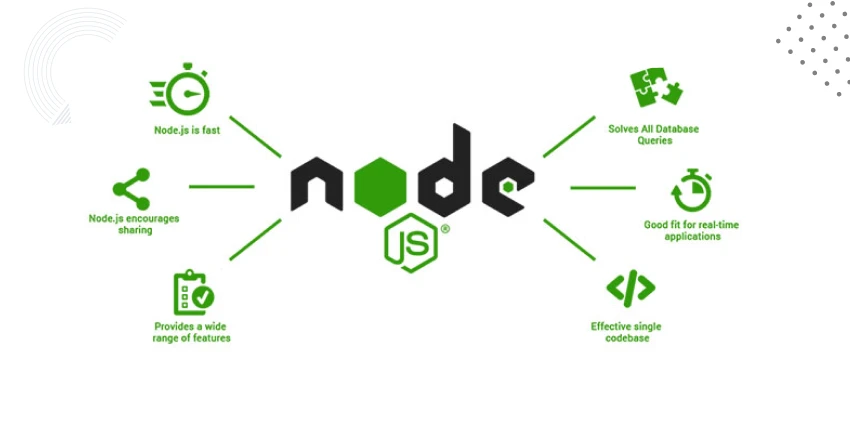
Java is perhaps the best option you have for building spectacular websites and applications. Node.JS is an open-source, single-threaded, cross-platform Java framework that allows developers to develop scalable and fast server-side websites and networking applications. Perfect for building real-time applications, Node runs on a Chrome V8 JavaScript runtime engine and is based on an event-driven, non-blocking I/O architecture.
If you want to hire Node.JS developers, make sure they are well-versed in C, C++ and JavaScript. The framework uses a single-threaded event loop that enhances the working and functionality of handling multiple clients at the same time.
How is this possible?
In a multi-threaded request-response environment, several clients send requests, and the server registers each response individually before responding back. This environment is used to process multiple concurrent calls at a single time. When the server receives a request from the thread pool, it assigns an individual thread to handle it.
Node.JS’s architecture is almost identical to the above environment. However, there are some key differences.
For starters, unlike a multi-threaded environment, Node.JS has a limited thread pool to receive multiple requests. As a result, when the server senses a request, Node places it in a queue. The server uses a single-threaded event loop component to receive requests indefinitely.
Meaning, that when the request comes, the loop picks it up from the queue and analyzes whether it requires a blocking input/output operation or not. If the operation is not needed, the server processes the request and sends it back to the source. In case the server senses the need to operate the blocking input/output mechanism, the request is assigned to the internal thread. The event loop tracks the blocking requests and places them in a loop. This is how Node.JS maintains a non-blocking nature.
This architecture is quite helpful as the framework uses limited threads, meaning fewer memory and resource requirements.
Node.JS Features
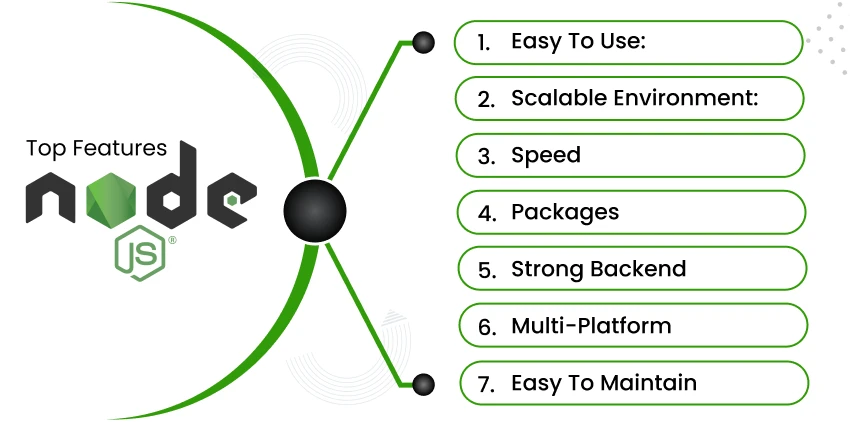
Node.JS is one of the JavaScript frameworks that has witnessed significant popularity in recent years. This has to do with the several features offered by this framework. Here are some of the noteworthy Node.JS features:
- Easy to use: New to programming? Did you know it is relatively easy to hire remote Node.JS developers? Why? Because Node.JS is easy to understand and quick, to begin with. It is simple, easy to use, and easy to learn.
- Scalable Environment: Node.JS uses a single-threaded environment. With features like a non-blocking mechanism and the capability to process a large number of connections, Node.JS is notably scalable.
- Speed: With a non-blocking mechanism in the single-threaded environment sued by Node.JS, the framework is pretty fast and efficient.
- Packages: Node.JS is an open-source framework. This allows developers to access more than a million packages from the NPM ecosystem.
- Strong Backend: The framework is written in C and C++, making it easy and loaded with additional features like a high-tech networking environment and constant support.
- Multi-Platform: The framework allows you to leverage cross-platform support to build SaaS websites, mobile apps and even website apps.
- Easy To Maintain: Both, the frontend and backend are managed by JavaScript, making it an easy choice for developers.
Read Also: Advantages and Disadvantages of using Node.js
Market Size
Looking to hire remote Node.JS developers? It is perhaps the best choice because Node.JS is growing fast. With a 1 billion + download threshold in 2018, the framework has been hitting popularity ever since.
Here are a few companies that use Node.JS:
- Spotify
- eBay
- Godaddy
Node.JS Applications
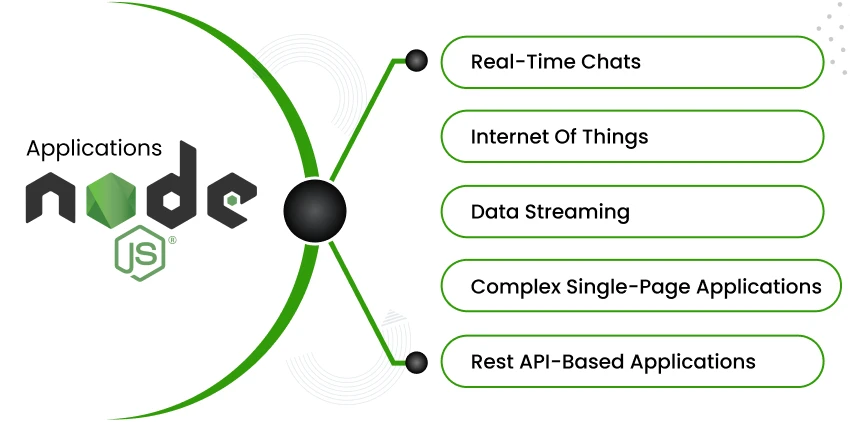
There are several reasons why Node.JS is a great pick. Here are some of the applications the framework provides, making it the right pick.
- Real-time chats: With a single-threaded environment, Node.JS is perhaps the best choice for easy real-time communications. The framework is highly scalable, allowing developers to build chatbots for effective communications. In short, the framework makes it easy for developers to add chat features to the software, applications, or SaaS websites.
- Internet of Things: An IoT application is built with numerous sensors to turn chunks of data into large numbers of requests. With the ability to handle multiple requests simultaneously, Node.JS can be an excellent option for building IoT apps.
- Data streaming: Apart from being fast and lightweight, Node.JS uses a native streaming API. This allows the requests to stream multiple requests at the same time. In fact, Node.JS is used by companies like Netflix for streaming purposes.
- Complex single-page applications: With a non-blocking approach used by the event loop of Node.JS, the framework accepts multiple requests in the background and imparts better functionality and a great user experience for SPAs that are built on a single page.
- Rest API-based Applications: Several sites require the usage of JavaScript for frontend and backend. With Node.JS, the server (backend) can easily communicate with the front end through REST APIs. Node also offers several packages to help build stunning web applications.
What Is .NET Core?
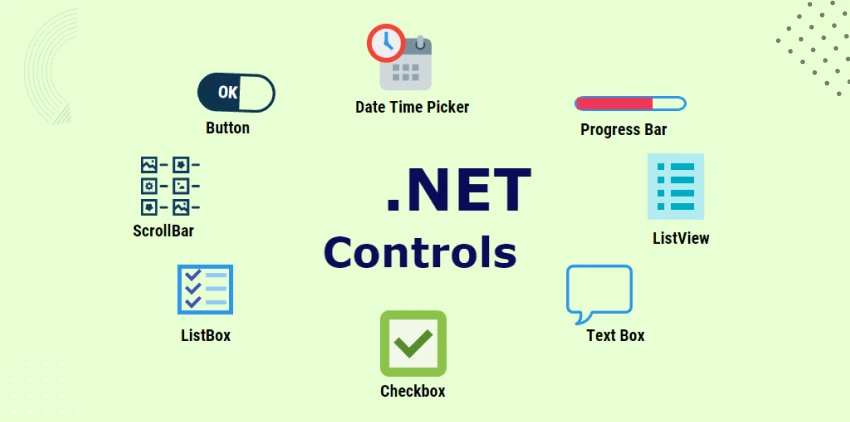
Unlike Node.JS, .NET Core is a general-purpose framework used by developers to build software applications for Linux, macOS and Windows. With a versatile framework environment and the ability to be used to build all types of software like mobile apps, desktop apps, web applications, cloud services, APIs, games and IoT applications, the framework uses multiple languages.
The framework supports programming languages like TypeScript, XAML, F#, VB.NET, and C#. Moreover, it is open source and supported by several independent communities.
In short, .NET Core is an advanced collection of high-tech libraries, APIs, tools, and multi-language support.
The framework was developed by Microsoft. Currently, it is managed by a non-profit open source organization: .NET Foundation.
.Net Core Features
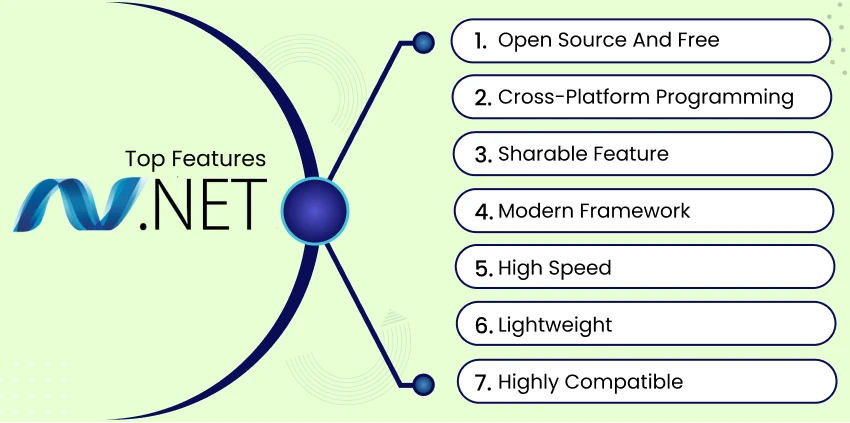
Though it is pretty less popular than Node.JS, .NET Core is a modern, flexible and fast framework with the following characteristics.
- Open Source and Free: .Net Core is an open source and free t download framework. Developers can find the source code for this framework on Github. With extensive community support and several developers being a part of the .NET Core community, the framework is quite popular. Currently, there are more than 60,000 developers using this framework and 3,700 companies using it. The framework is licensed under MIT and Apache licenses, making it free to download and use.
- Cross-Platform Programming: .NET Core allows developers to cross-platform and builds a single application or software compatible with windows, Mac and Linus operating systems. The architecture uses x64, x68 and ARM mechanisms. Moreover, developers can also import assemblies and libraries to use them on multiple platforms.
- Sharable Feature: Developers using .NET Core uses one single API model in .NET standards, which is common to all .NET applications. This API or library can be used on other platforms, allowing cross-platforming.
- Modern Framework: Using a C# version 8, .NET supports object-oriented programming language and asynchronous programming, which encourages productivity. The framework is also built keeping in mind the modern needs and problems. It is used to develop applications for gaming consoles and IoT interfaces.
- High Speed: Comparing to .NET Framework and .NET Core 2.2, .NET Core 3.0 is blazing fast. According to recent studies, the framework is much faster than older frameworks.
- Lightweight: Highly lightweight .NET Core can easily be included in apps or installed machine-wide, on a single server or for a side-by-side user.
- Highly Compatible: .NET Core is highly compatible with .NET Standard, Xamarin and .NET Framework. It also supports various web frameworks working and other libraries like Angular, JavaScript and React. The framework also comes with a critical component, TypeScript.
Applications Built Using .NET Core Framework
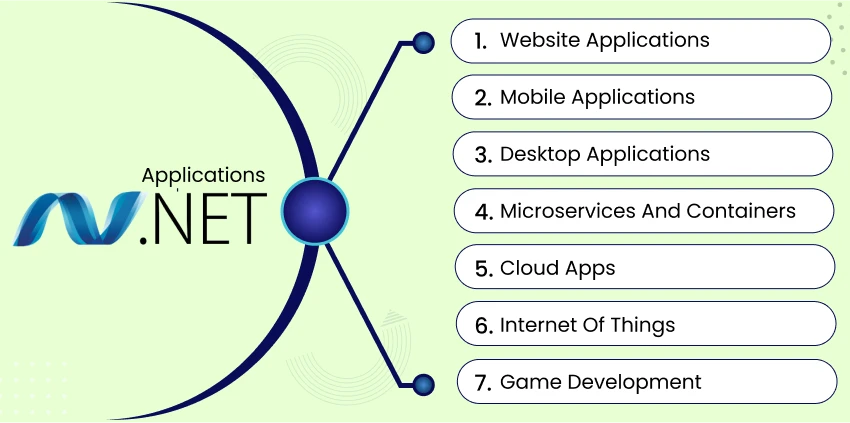
Stating again .NET Core supports cross-platforming. This means it can help you build applications and software that are compatible with Windows, Linux, and macOS. It also comes included with IntelliSense and debugging, enabling the modern needs of coders. It also supports third-party editors like VI, Emacs, and Sublime.
Here’s how developers can use .NET Core in different ways:
- Website Applications: .NET Core ecosystem contains ASP .NET Core as a core component to build web pages. The component is based on an MVC architecture. Moreover, the framework also offers several libraries for web development.
- Mobile: .NET Core is precisely used for mobile app development. Xamarin is a toolset containing several libraries to aid cross-platforming development for mobile apps. The toolset is based on C# language. .NET Core is compatible with Xamarin, allowing developers to develop stunning mobile applications.
- Desktop Applications: Xamarin, UWP, WPF, and Windows Forms are four main components required to develop websites. .NET Core allows you to use these components and also enables you to support interoperability between these frameworks. While Windows Forms is the first component produced by the framework to support website development, WPF is a modern version.
- Microservices and containers: A new design pattern used by developers, Microservices allow developers to build small modules of software and allow communication between them using some well-defined contacts. In short, these services will enable developers to make vast software by deploying individual elements in one place. After deployment, each individual model can be scaled independently. The architecture of Microservices is supported by the .NET core.
- Cloud Apps: Cloud apps are pretty these days. Azure, which is supported by the .NET core framework, is used to support the development of all kinds of cloud apps.
- Internet of Things: Using the UWP framework, .NET core supports IoT app development for devices compatible with Windows10. It can also help developers build apps that can run on IoT powered by MinnowBoard MAX, DragonBoard 410c and Raspberry Pi.
- Game Development: Unity is the most popular framework used for game development. C# and UWP are used to build games for desktops, gaming consoles, mobiles, and the web.
Read Also: Advantages and Disadvantages of using .Net
A Detailed Comparison Between Node.JS VS .NET Core
Regardless to say, .NET Core and Node.JS have entirely different processing models. Here are some key differences between the two frameworks.
Asynchronous Or Synchronous Processing Models
Node.JS – Node.JS is an asynchronous platform where the server handles multiple requests at the same time and works using an anti-blocking approach. The code is executed in the main thread, allowing the server to spawn different threads at the same time to perform multiple tasks. This is why Node.JS is exceptionally lightweight and efficient, especially if the app or software is loaded with heavy data.
.NET Core – Like Node.JS, .NET Core is also an asynchronous platform. However, the developments made on this framework are not that fast and effective, as compared to Node.JS. Another reason why you should hire remote Node.JS developers.
Performance
Node.JS – Let’s talk about performance. But before we move into that, we must understand that the speed and capacity to handle the data load are done differently by both frameworks. Meaning, that performance varies. A server might reflect quick performance, which can be hampered anytime in case the server is loaded with multiple requests at the same time.
In short, when it comes to Node.JS load handling, we say the framework winds the bet. Why? It’s because of the thread pool. .NET is based on a single thread approach for each request. Node.JS offer a non-blocking system that uses limited threads, which not only saves time and other efforts but also helps in proper data handling and data management.
.NET Core – We must say that the .NET core is better at rendering. However, when it comes to requesting registration and assessment, Node.JS is a far better option. Node is based on C, C++, and JavaScript, meaning it is more modern than .NET Core.
Security
Regardless to say, both frameworks have their set of strengths and weaknesses. Therefore, the choice will actually depend on your project needs. However, in terms of security, Node.JS is a suitable option for application and website development. The framework is relatively swift in handling multiple requests without putting a high load on the server architecture CPU.
Speed
With a lot of disposable libraries and components, a single-threaded system, easy request rendering and a non-blocking mechanism, Node.JS again wins the best in terms of speed. With .NET Core, you will be able to enjoy upgrading the code with a number of acquired shows. However, the cost of redirecting these arrangements will be quite time-consuming and challenging.
Ecosystems
Node.JS – Node.JS is an open-source JavaScript runtime environment perfect for composing backend code using a frontend language. Node.JS also follows a number of measures to ensure it improves the development process for mobile and web applications.
.NET Core – Contrary to Node.JS, .NET Core is a server-side structure with a number of tools and libraries. However, the options are much better in Node.JS.
Who Is The Winner Between .NET Core VS Node.JS in 2023?
As stated above, your framework choice will actually depend upon your needs for the project. It is a great idea to hire Node.JS developers if you are working on medium-sized or small-sized businesses. If you have large-scale application requirements, .NET Core might be a better option. However, you would have to endure low speed and not-so-good performance.
Hire Node.JS Developers: Contact GraffersID Today
If you are looking to cut down your costs, you can hire Node.JS developers from countries like India to get in touch with global talent, diversify your team and reduce management and operational expenses.
We, at GraffersID, will help you get in touch with highly-skilled professionals who will help you meet your goals in the long run and improve the services.
